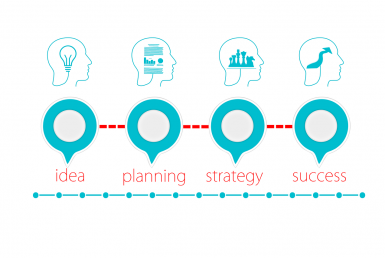Insurance Agency for Sale? – Read Before you Buy!

Insurance agency for sale? Yes, you may be either in the market to buy or sell an insurance agency, but
before you proceed with this process, lets look at some important terms associated to the
insurance industry. This way, you will have a better understanding, of what type
of insurance agency your business falls into.
This is useful information, regardless if you are looking to buy or sell.
This can help increase your bottom line if you are a seller,
or find the right agency type if you are a buyer.
So, regardless of position or role, the more knowledge you consume, the better
off you will be, when the time is ready to make your business decision.
Buyers and Sellers – Insurance Agency Overview
What are Local Insurance Agents?
So, what exactly are local insurance agents, and why you should care?
The definition or term is, not yet clear by any means.
Some entities or people, refer to it, as a local recording agent as a description,
or an insurance company’s general agent in other locations.
It can get confusing if you do not work within the industry.
However, if you are an agency owner, it’s a good idea to always gain further knowledge.

Insurance Authority – Difference in Power?
What is the difference between a local agent and Managing General Agent?
The difference lies with the power and authority between the local agent and MGA.
This is what makes the role a lot different. No one role can act on behalf of the insurer
and the other, is limited by provisions and guidelines.
This is the major difference and what makes this specific classification different.
A general agent has more power and authority
than a local agent as you have learned.
A local agent would be considered an appointed agent of the general agent.
Local Insurance Defined?
The term “local” entails an approximate location to a potential prospect.
So, you think proximity and demographics when you think local.
More specifically, when you think local, you think, local.
You know, the guy down the street. Makes sense right?
You know the experience, just go anywhere outside
your comfort zone and you will know the feeling.
You may not need to branch off that far when discussing local insurance agents,
but it gives you a fun overview and record of reference.

The Power Exchange – What are Contractual Agent Roles?
Usually, a contract can determine the power exchange between each type of agent.
So, when in doubt, check and review over the agency agreement letter.
This agreement spells out your agent role and the insurers’ role.
It should explain everything in more detail if need be.
If not, your always entitled to ask for one, so ask for one!
It’s a good idea to always review your power authority if you are a local insurance agent.
Review Coverage
You may think you have certain authority over certain acts,
when in your contract, it would state otherwise.
This can become a tricky situation when a claim or loss should occur.
This is when apparent authority gets blurred into actual authority.
So, save yourself the headache of deciding the definition in the courts of law,
and just read over your contract, or ask a professional if you are unsure.
Asking beforehand can avoid future problems.
Plus, it can save you more than time and future headaches,
it helps to secure your assets from future loss.
Soliciting Agent – The Next Phase
This is where the meat and potatoes of the industry is at, or the front lines of sales is anyways.
These agents are labeled, soliciting insurance agents.
They are designated and responsible for the true sales process
and are termed the “true insurance sales-person”.
A title many enjoy in the insurance industry today.
A soliciting agent may work for a general agent, and is responsible for the initial contact with the insured.
The soliciting agent’s power and authority is more limited than a general agent.
Here are some of the duties a Soliciting agent can perform:
- contact with the insured
- providing completed application for coverage with insured’s assistance,
- processing or down lowing application to the insurer or general agent
- and, the acceptance of the initial premium payment.

Sub Agents – Who?
Yes, there are more agent roles and sub-agents that fit that description.
A sub-agent is one who is appointed through a general agent or managing general agency.
For example, let’s say that you are an independent insurance brokerage.
You have an agency appointment through a Managing General Agent.
In this example, you would be the sub-agent because, the general agent basically hired
you to help take on some of their duties.
Lighten the load you can say.
So, of course you will have less authority and power than the MGA. Usually,
the power or authority between agency and MGA will be spelled out in your contract.
If not, it is usually an inferred agreement. When in doubt, remember to always refer
to an insurance professional or adviser in this area or specialty.
Direct communication with the source is always the best measure to an agents’
success and longevity in the industry.
Independent Agents – Small to Large Agencies
Most people are familiar with this term, independent insurance agents,
more so than the others.
The term however to some degree is a misnomer.
Why you ask, because independent agents have contracts with various insurance companies,
but unlike general agents, are not exclusive.
So, independent agents will represent several insurance
companies and place insurance with only those they prefer.
The only restrictions would be found again, in the agency appointment agreement letter.
Always review this area to make sure no restrictions are authority is being overstepped.
Tools of the Industry or Trade
An independent insurance agent will have internet
access to these insurance companies,
where they can rate and bind a policy.
Always check with each carrier appointment’s guidelines.
This way you know the exact steps and authority you have with them.
In most cases, independent agents will have the responsibility of taking the initial
deposit on an insurance plan they sell to an insured.
Transaction Process
The insurance agent would then upload the policy where it is bound over the internet.
This time stamped policy application is then transmitted over to the insured for signatures.
The method of delivery to the insured can come in several forms.
It can be done through the traditional way, as a walk in.
This is where the insured physically comes into the office, sits down and signs the application for coverage.
A trend that use to be far more popular in the past decades.
Now, the more advanced and efficient way is through electronic delivery.
This is usually either built in directly with the insurance carrier or the independent agent has a
3rd party vendor portal, where they upload the policy documents,
and electronically send out to the customer.
The insured then opens the email sent to their inbox,
reviews and signs it for completion.
All of this is done with the simple click of the mouse or press of the finger on a smartphone.
That’s it!

Technology and Advancement in the Industry
The days of sitting in an office setting is optional at this point,
with other methods now available for application delivery.
There are still people who like to walk into a local insurance agency,
and conduct their business.
This population size is dwindling with the onset of more
advance technology being brought to the
marketplace, and a whole new generation that demands it.
Agency Security
This removes all the lag time in between having such advance technology however.
It allows the insured to review all highlighted areas, and initial and sign areas of the application.
This time stamped application ensures a higher completion
rate with less errors and more accuracy.
This reduces errors and omissions for an agency owner, which is great news.
The electronic format is saved for future policy retrieval and audit reports.
Now, the only difference from an independent agent versus
an insurance broker is the exclusivity part.
This is which leads us into our next type of agent or agency,
which is labeled, dual agencies.
Dual Agencies – Added Role?
This role is usually defined in the agency appointment agreement.
It will lay out the conduct of each party involved. Or it will provide a
direct agreement where an agent can act as a dual agent for the insured
and for the insurance company.
This can occur for example, when a broker or independent agent
collects premium but also acts as the agent for the insured.
The agent may assist with the insured’s needs throughout the lifetime of the policy.
Beneficial Relationship?
This can be a beneficial relationship for both insured and agent.
The agent wants to continue great service, because who doesn’t like renewals.
Or better yet, what if the insured decides on going with another insurance company for
whatever reason, you as the dual agent, can place this insured
with another carrier, and keep the business on your books.
It’s nice when you can do the shopping for the insured,
all under the same agency roof.
Now, that you understand the agent role of your agency, and the part it plays in
the insurance industry, the next question is what is your book made of?
Meaning, is it mostly commercial auto insurance policies or just liability car insurance policies,
or a mixture of both personal and commercial lines.
Or, your agency may be nothing but benefits,
medical and workers compensation policies.
This is important to consider when looking at agency value.

Agency Numbers?
These numbers will also be considered with earned versus written premium, loss ratio
and book life. Is the book brand new, or has it been churned for many years?
According to the 2016 Market Share of Property & Casualty Insurers licensed to do
business in California, property and casualty products have increase several percentage
points from the last year, 2015.
To be exact, there was a 2-point increase. But, with this increase in production,
also came an increase in the loss report.
The number from 2015 was 67 percent and it jumped up to 73 percent in 2016.
Agency Production vs. Loss Ratio?
So, even if an agency is increasing their production on paper, their bottom
line might not be reaping any rewards.
This is because the back-end, or loss ratio is being affected, but in a bad way.
This means that each dollar you take in for an insurance company, they are making less
per written premium dollar, than compared to an agency with a better loss ratio.
Non Standard Book vs. Standard – Insurance Agency for Sale
When discussing an agency book, the area to examine is the direction where most of
the business or risks are being placed.
For example, is most of the business being written through a standard direct insurance carrier,
or is it being channeled through general insurance agencies, or nonstandard insurance carriers.
The word “nonstandard” has a negative connotation to it in the insurance industry, and it shouldn’t.
This term can start from within the industry and work its way in the mainstream for having a bad rap.
We have all seen the commercials on television, showing the viewer no use for a middle man.
Instead, they are asking for their business directly, and to cut out the middle man.
The middle man term describes many insurance agencies out there currently so,
it’s a good time to shed some light on this area.
Nonstandard Insurance Plans, are carriers that underwrite high risk insurance.
This means the DUIs, major ticket and accident offenders,
people with poor credit, and a poor insurance history.
Basically, they will accept most risks that your
top national carriers or preferred markets will not accept.
So, it is a good thing that the nonstandard market does exist.
It provides an alternative source for those that fit in this marketplace.
Non Standard Insurance Agencies to Buy or Sell?
There are nonstandard auto insurance agencies out there. Some are looking to sell, and others to buy.
But before you do either, what exactly is the difference you might ask if you’re on the other side.
Well, this is a great starting point. A nonstandard auto insurance agency may
represent carriers that you do not always see on television, 24/7.
Unfortunately, this lack of media representation can make the public to assume
that the financial health of the carriers or customer service of these carriers
must be different. And by different, we mean not good.
This is far from the truth however. The true difference lies between the policy form itself.
The standard auto policy is written on an approved State form.
These forms add state standards, nothing special to them.
Alternative Insurance Plans
Standard auto policies have more restricted insurance guidelines.
This is where drivers who have poor credit, poor driving record or no insurance history at all,
will feel the difference. This is when you would shop around for a broader insurance form.
A broader insurance form is designed for you in mind if you fit this bill. It will accept a broader
range of risks that your typical standard insurance policy will not accept.
Many of these nonstandard insurance carriers do not account for your credit history.
Your credit report in most cases, is never even ran.
So, do not be surprise if your social security is not requested
during any part of the transaction.

Industry Terminology – Insurance Agency for Sale
The wording of substandard insurance is used interchangeably with nonstandard insurance.
This is a discredit to the actual nonstandard market for both
insurance professionals and consumers alike.
The State of California, for example, would never allow for
its people to have a substandard insurance market.
It sounds ridiculous once you think about it, and say it out loud to yourself.
So, the confusion of the two should never factor in the financial health of a nonstandard insurance agency.
Conclusion:
It is important to have a clear idea of what type of business you are interested in buying or selling.
As you can see, each business for sale or to buy, has a specific niche or industry group that it belongs
to, as an example, insurance agencies.
Specialized Business brokers are equipped with knowledge and experience in each industry on the market.
So, reach out for expert advice, when ready to buy or sell, your insurance agency!



